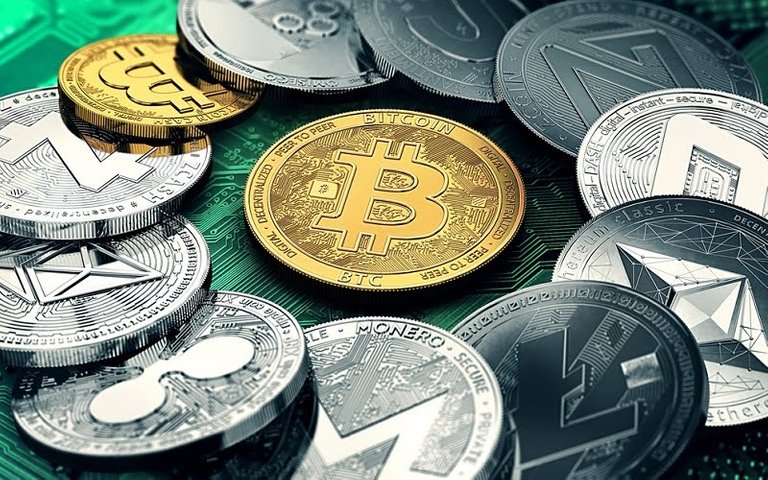
I've been involved in the crypto market for a few years now, mainly making gains from long term holding as I'm a fairly twitchy trader and mistime things. I've made a few mistakes but overall the things I've bought for long term holding have all been successful (so far), I bought BTC at £300, ETH at £12, NEO at £4 as well as WAVES, STRAT & LSK all at around the £.50-£2 mark and STEEM at £.15-£.20. I've made smaller investments in other projects to varying degrees of success but nowhere near as much as the above.
As a result of the semi-success I've had, I thought I'd share the things I look for in a new currency before I invest in it, I'm not very good with the technical aspects of cryptography (although I do know the basics) and I'm fairly awful at reading charts, so I base my investments mostly on the information from their website, any github repos they have and social media pages dedicated to them and try to work out if they match any two of the following three things;
1 - Useful Units
The tokens or currency units should preferably be 'spendable' as opposed to focusing on holding, for example, Sia's currency can be used to rent cloud storage space on other peoples computers, on the other hand, TenX tokens are for holding onto in the hopes of receiving a portion of the transaction fees from the TenX card. Holding tokens can be just as good, but they rely on wider adoption of the network to really grow in value, whilst spendable tokens have their value from what you can use them for, even if the network isn't widely used (as long as some people are using it of course).
2 - Future Potential
If a project is already completed and the final product in use, there isn't much opportunity for growth short of gaining niche dominance and simply wider adoption (of the currency and crypto overall) or significant upgrading. Newer projects that haven't finished their product or have only just finished it still have all the potential that comes with new developments and features as well as having the entire market space to expand into when they are released. This obviously needs to be considered alongside a) how flooded the market is and b) how dominant the current leader in that market already is. Future potential coins would be things such as Opus that have a music streaming demo available and are gathering music artists, but the real growth potential is when the final platform comes out. As a side note, just being vaporware doesn't count here unless there's actually active development and realistic potential for it to be completed.
3 - Project Reliance
If another project relies on the survival of this one, as long as that other project is successful, it increases the odds of this one being a success, Ethereum is an obvious example, almost every token seems to be on the Ethereum network and as a result, should Ethereum fail, unless they move elsewhere, those projects would fail as well, but while they are using the network, it is by definition, succeeding. Another good example is STORJ which a few upcoming projects are using as decentralised storage for their files and as long as they do, there'll always be some demand for STORJ.
Obviously none of this is advice, it's simply what I've been doing up until now and even meeting all three of these requirements doesn't mean the project will be successful, they're simply things to use as indicators alongside further independent research.
I'd be interested in knowing what things other people use to try and gauge whether or not a project is worth getting into and if there are any real red flags you look out for?
I totally agree and would always chose a usable token with a real product over some coin that labels itself as a currency and may never be used as a real currency. I would even go so far to doubt, if currency should be used at all for crypto tokens/coins - I see it more as an kickstarter-like investment in startups. (...and I always like to bring up SUB as an perfect example for that)
thanxs for such a great way love to follow people like u and it will really help me!
I'm also very curious about the creators of any project, and their past history in successful project executions.